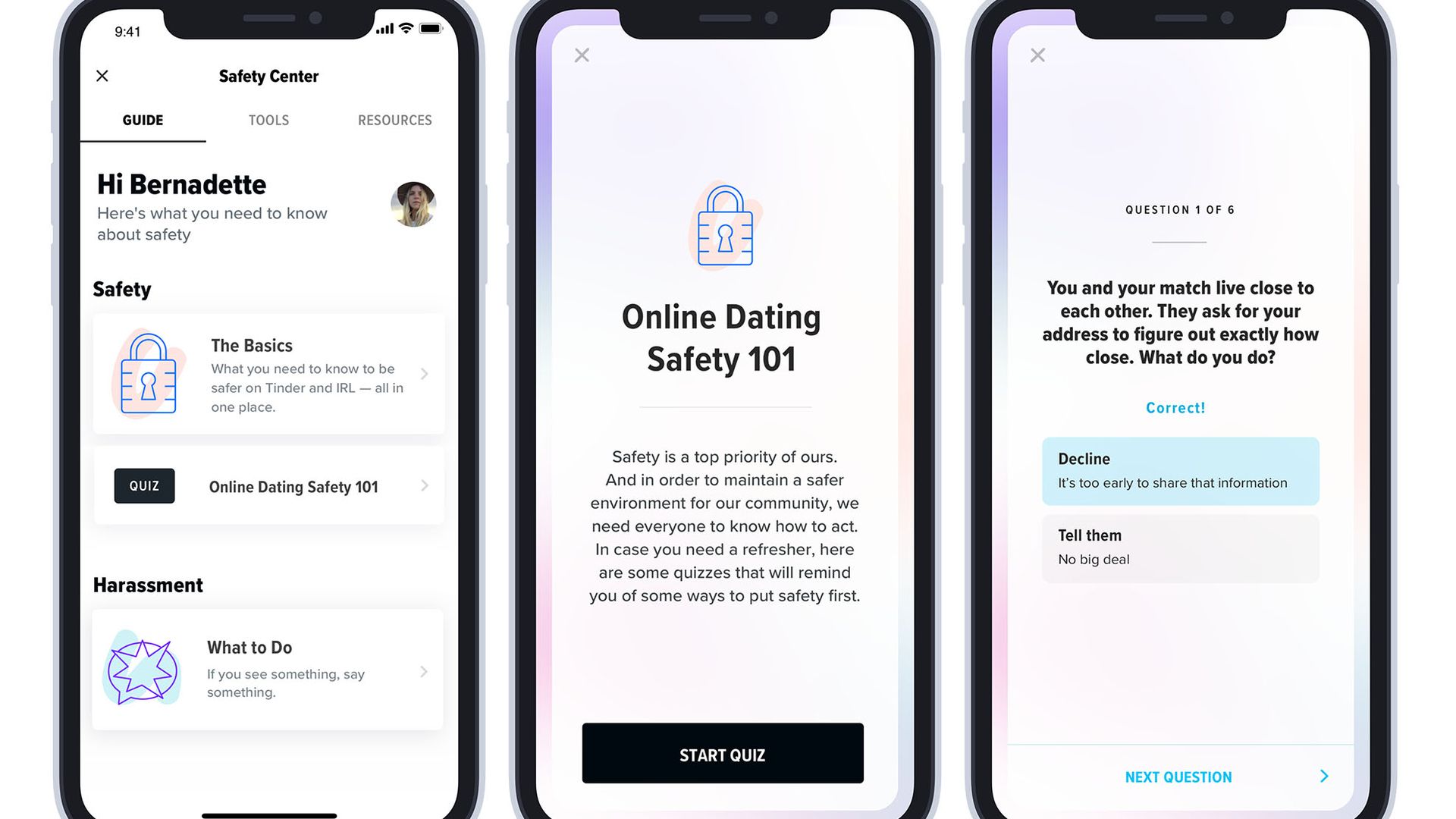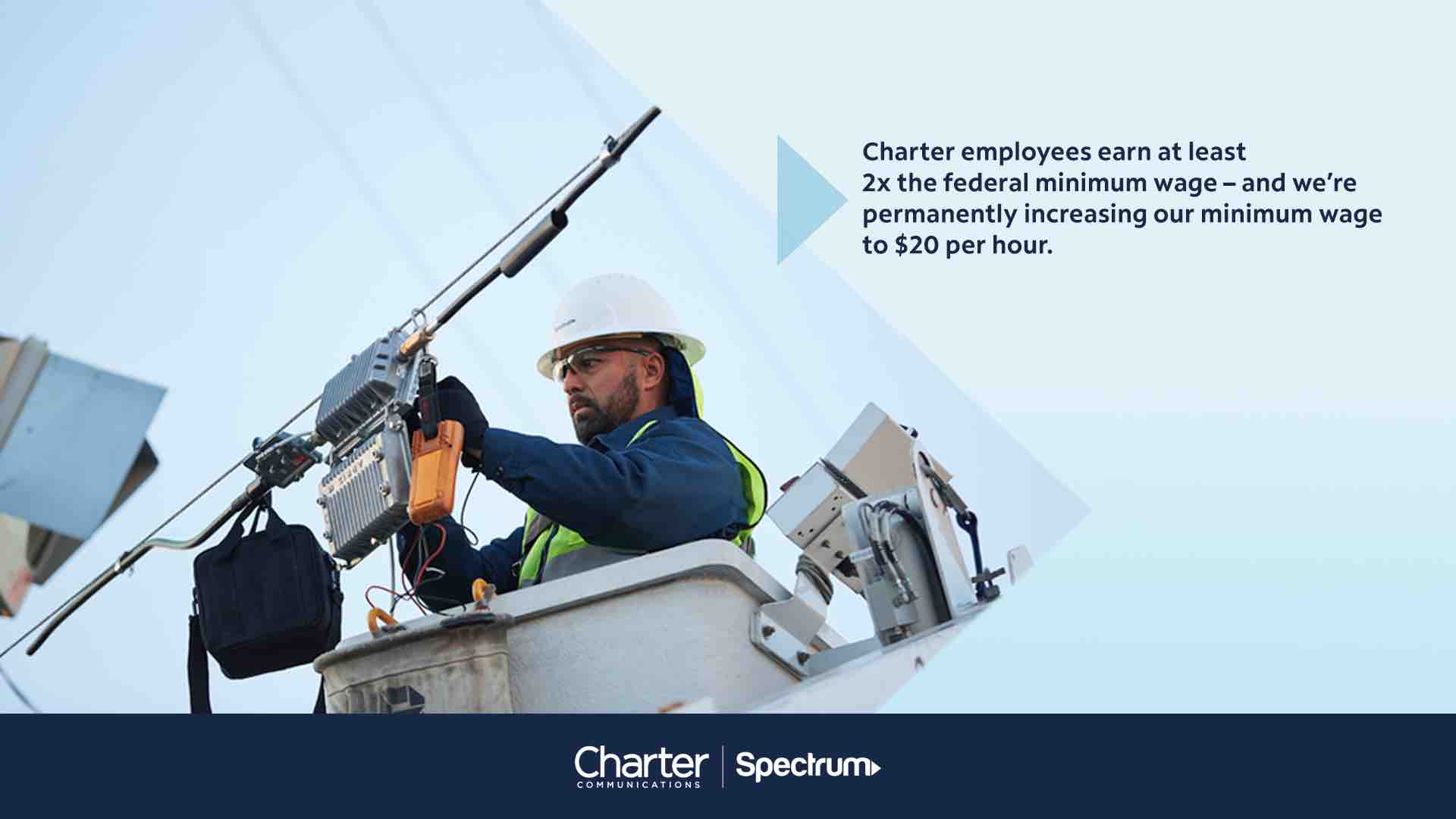| | | | | | | Presented By Charter Communications | | | | Login | | By Ina Fried ·Dec 07, 2020 | | Greetings. And, I know the year seems long. But, fear not, it's the last March of the year. Today's Login is 1,414 words, a 5-minute read. | | | | | | 1 big thing: Tech research becomes hazardous ground |  | | | Illustration: Aïda Amer/Axios | | | | Tech giants have brought on teams of ethicists and diversity advocates to counter criticism of their products' impact on society — but they're not always happy with their experts' findings. Driving the news: Google's abrupt firing of prominent researcher Timnit Gebru last week sent waves through the industry, raising questions about the company's commitment to free research and tolerance of dissent. The big picture: Research units within large tech companies have made many fundamental technical breakthroughs in the past. But as technology has played an ever bigger role in society, and more company-backed research has focused on tech's social impact, researchers' findings don't always line up with corporate objectives. Details: - Gebru, a leader in the field of AI ethics, wrote Google management with concerns after the company insisted its name be taken off a paper she and others submitted for an industry conference. The paper explores problems with mining vast reams of text to train AI — a practice key to Google's business.
- Gebru said she'd quit if Google didn't address her concerns. Google told her it took that as an immediate resignation.
- Separately, Gebru had also written an email that circulated widely within Google criticizing the company's record on diversity.
Where it stands: Several thousand people, both Google employees and outsiders, have signed an open letter pressing Google to explain its actions and commit to greater transparency. Between the lines: Gebru has been a strong advocate for reducing bias in AI, and a paper she co-authored exposed how gender and racial basis is built into many facial-recognition systems. - Sources inside and outside of Google say her work in both ethics and diversity had ruffled feathers in some corners of the company even as she maintained the support of both her manager and the broader team focused on AI ethics.
- Meredith Whittaker, who helped organize last year's Google employee walkout, said that Google's move sends a chilling message. "When they felt she was pushing too hard on the issues she was hired to advocate for, they fired her," Whittaker said.
The state of play: Within Google's research unit, the move has raised concerns about the company's commitment to academic freedom and suggested to some that women and people of color are targeted for retribution when they speak out. - It also comes as Google finds itself under scrutiny from government, critics and its own workers for everything from allegations of monopolistic practices to its treatment of contractors to the business it does with military and government agencies.
- Known for many years for its freewheeling and outspoken culture, Google has more recently dialed back its toleration of internal debate and dissent.
The other side: In a public note that also included his Thursday email to his staff, Google AI head Jeff Dean noted that Google's research and publication practices are designed to reflect that it employs a wide range of researchers, some of whom disagree with one another. - He says the company has "a strong track record of publishing work that challenges the status quo." Google declined to comment beyond Dean's statement.
Why it matters: Research from companies like Google forms a considerable portion of the broader body of work on key topics like AI. Gebru's case raises questions about the extent to which corporate research is shaped by corporate interests. My thought bubble: The conflict is in part a case of mismatched expectations. - Companies should hardly be surprised if the diversity advocates and ethicists they hire point out problematic systems and behaviors inside their walls.
- At the same time, those researchers realistically can't expect the same level of academic freedom they would find working at an academic institution or nonprofit.
|     | | | | | | 2. Scoop: Match to audit sexual assault prevention efforts |  | | | Image: Match Group | | | | Tinder parent Match Group is partnering with the Rape, Abuse & Incest National Network (RAINN) to audit the company's policies and practices for reporting and preventing sexual violence within its dating apps. Why it matters: Online dating has become the main way people meet prospective partners, giving the services a key role to play in efforts to prevent sexual assault. Details: - The initial phase of the review will focus on three Match properties — Tinder, Hinge, and Plenty of Fish — though the company hopes to use the learnings across its portfolio.
- RAINN has already started working with Match and expects to spend the next several weeks understanding how its systems and processes work and then making recommendations.
Between the lines: The move comes just two months after Match hired former police officer and Uber safety executive Tracey Breeden as its first head of safety. What they're saying: - RAINN CEO Scott Berkowitz: "There are companies that approach safety as just risk mitigation and then there are companies that approach it as a moral obligation and feeling like they owe it to they customers. The companies we try and partner with are the latter."
- Breeden: "Corporations need to understand we have a role to play and it's an important role. There are actions we can take that not only create safe spaces on the platform, (but also) create safety beyond that."
|     | | | | | | 3. TikTok gets more time (again) |  | | | Illustration: Aïda Amer/Axios | | | | The White House is again giving TikTok's Chinese parent company more time to satisfy national security concerns rather than initiating legal action, a source familiar with the situation tells Axios' Dan Primack. The state of play: China's ByteDance had until last Friday to resolve issues raised by the Committee on Foreign Investment in the U.S. (CFIUS), which is chaired by Treasury Secretary Steve Mnuchin. This was the company's third deadline, with CFIUS having provided two earlier extensions. What now: The source says CFIUS won't provide another formal extension, but rather a de facto continuation as the two sides carry on with negotiations. - Talks had ground to a halt around the election, but have picked back up again in recent weeks, with some outstanding issues newly resolved.
- The proposal, which President Trump agreed to in principle back in September, would be for TikTok to be controlled by a group of U.S. entities, including Oracle, Walmart and several venture capital firms, with ByteDance to retain a minority stake.
CFIUS still could ask the Justice Department to enforce the order and take action against ByteDance, given that no formal extension has been provided. - Trump's executive order that TikTok be shut down in the U.S. — which is different from the CFIUS order — has been temporarily restrained by the courts.
What they're saying: "The Committee is engaging with ByteDance to complete the divestment and other steps necessary to resolve the national security risks arising from the transaction, consistent with the President's August 14 Order," a Treasury spokesperson said Friday evening. |     | | | | | | A message from Charter Communications | | Keeping the communities we serve connected when it matters most | | |  | | | During these difficult times, Charter has focused on our commitment to keep people connected to what matters most. To date, we have: - Provided free broadband to 450,000 teacher and student families.
- Kept 700,000 people connected.
- Forgiven $85 million in customer debt.
Learn more. | | | | | | 4. Google in spat with IAC over Chrome extensions | | Google confirmed Sunday that it removed some InterActive Corp. browser extensions from the Chrome Web Store, following a report that Google thought some of these extensions may entail deceptive marketing. Why it matters: IAC both relies on Google and competes heavily with the search giant, which the Wall Street Journal report said is now weighing "severe penalties" against the smaller company. Plus, the dispute comes amid heightened antitrust scrutiny for Google, including a suit from the Justice Department. Driving the news: Per the Journal report, a Google audit found IAC, which owns a large portfolio of web properties from video platform Vimeo to finance site Investopedia, advertising against Google searches for voting information and other terms. - If users clicked on the ads, IAC would reset their Chrome homepages its own Google-powered search engine MyWay and install a browser bar for Ask.com, a separate IAC search property.
Of note: The Journal report says that Google has yet to take stronger action in part because it worries that doing so would raise further antitrust concerns. What they're saying: - A Google spokesperson confirmed the takedowns and added in a statement, "We're reviewing [IAC's] remaining extensions and our enforcement options, and have not made a decision regarding IAC's status on the store."
- "Google has used their position to reduce our browser business to the last small corner of the internet, which they're now seeking to quash," IAC countered in its own statement.
|     | | | | | | 5. Take Note | | On Tap - MongoDB reports earnings on Tuesday, Slack, while Asana reports on Wednesday and Adobe is schedule to do so on Thursday.
Trading Places - Former Salesforce executive Niki Christoff tweeted Friday that she was fired from the company back in May for taking an outside board seat, saying only those reporting directly to CEO Marc Benioff are allowed to do so.
ICYMI |     | | | | | | 6. After you Login | | Give mom her phone back. "Mine," exclaims 18-month-old Felicity, the daughter of Axios HR chief Dominique Taylor. And there's reason to understand why Felicity is so drawn to smartphones: Her middle name is Ina. |     | | | | | | A message from Charter Communications | | Charter is investing in their employees | | |  | | | | Connectivity matters more than ever. As we face these challenging times together, Charter's 95,000 employees have stepped up to help Americans stay connected. That's why Charter is investing in them, now and in the future – including by permanently increasing its minimum wage to $20 an hour. | | | | | | Axios thanks our partners for supporting our newsletters.
Sponsorship has no influence on editorial content. Axios, 3100 Clarendon Blvd, Suite 1300, Arlington VA 22201 | | | You received this email because you signed up for newsletters from Axios.
Change your preferences or unsubscribe here. | | | Was this email forwarded to you?
Sign up now to get Axios in your inbox. | | | | Follow Axios on social media:    | | | | | |







No comments:
Post a Comment